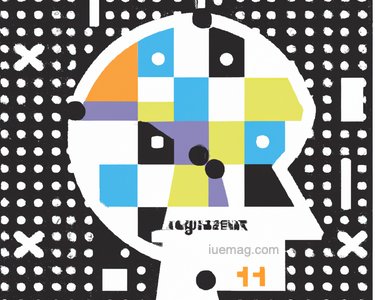

The Role of IQ Score in Education
 IQ score is the most commonly used measurement to determine intelligence. It’s a number derived from standardized tests that reflects your ability to reason, solve problems, and understand new information.
IQ score is the most commonly used measurement to determine intelligence. It’s a number derived from standardized tests that reflects your ability to reason, solve problems, and understand new information.IQ tests are designed to be fair for people of all ages. But IQ tests are not perfect. They cannot assess every type of intelligence out there nor predict your future performance with 100% accuracy.
Many factors play a role in determining your IQ score besides raw cognitive abilities, such as motivation, family environment, and learning opportunities. However, IQ score plays a significant role in today's education system.
Significance of IQ for gifted children
1. IQ scores measure intelligence and are particularly significant for gifted children in educational placement. IQ tests focus on problem-solving skills, memory, spatial perception, and language abilities.
2. Individuals with high IQs tend to be more socially capable, creative, and able to grasp complex ideas quickly. Furthermore, high IQs are associated with better performance in school and test-taking ability.
3. Generally, higher IQ scores indicate greater intelligence and cognitive ability and can predict academic achievement and occupational performance.
4. However, not all individuals with higher IQs pursue careers in highly-skilled occupations.
5. Instead, individuals with high IQs may have a range of interests and abilities that allow them to pursue various interests throughout their life.
2. Individuals with high IQs tend to be more socially capable, creative, and able to grasp complex ideas quickly. Furthermore, high IQs are associated with better performance in school and test-taking ability.
3. Generally, higher IQ scores indicate greater intelligence and cognitive ability and can predict academic achievement and occupational performance.
4. However, not all individuals with higher IQs pursue careers in highly-skilled occupations.
5. Instead, individuals with high IQs may have a range of interests and abilities that allow them to pursue various interests throughout their life.
Student Placement
1. IQ scores can be used to assist with the educational placement of students. An overall model from three designs estimates an average effect size of 3.394 IQ points for a year of education.
2. IQ scores may also help implement a suitable education program for children.
3. IQ tests help to measure an individual's mental ability relative to their peers.
4. They can be used in educational testing and assessment to assess the general intelligence of a child or individual.
5. Observers trained to detect boredom and lack of motivation can assign motivation scores to students during an IQ test.
6. Employers may use IQ scores to decide if an individual is suited for a particular job.
2. IQ scores may also help implement a suitable education program for children.
3. IQ tests help to measure an individual's mental ability relative to their peers.
4. They can be used in educational testing and assessment to assess the general intelligence of a child or individual.
5. Observers trained to detect boredom and lack of motivation can assign motivation scores to students during an IQ test.
6. Employers may use IQ scores to decide if an individual is suited for a particular job.
 Labeling students with limitations
Labeling students with limitations
The concept of an intelligence quotient (IQ) score is used to measure mental ability relative to one's peers. The scores are often used to identify students with high intelligence, but the scores have been criticized for inaccurately reflecting a person’s cognitive abilities. The reason is that these scores reflect a student’s general intelligence rather than the skills and knowledge needed for a particular job.
Labeling students with an IQ score can also have a self-fulfilling prophecy, as those labeled as “learning disabled” may have lighter workloads compared to their peers. Besides, it has been suggested that IQ scores may help predict job performance. However, an alternative social explanation has been put forward that IQ scores are not fixed and can change over time due to experiences and learning opportunities. It is possible that children may be better off not knowing their IQ score, as the label may be used as an excuse.
Labeling students with an IQ score can also have a self-fulfilling prophecy, as those labeled as “learning disabled” may have lighter workloads compared to their peers. Besides, it has been suggested that IQ scores may help predict job performance. However, an alternative social explanation has been put forward that IQ scores are not fixed and can change over time due to experiences and learning opportunities. It is possible that children may be better off not knowing their IQ score, as the label may be used as an excuse.
Accuracy of Tests
1. IQ tests are used to measure intelligence relative to others. When used for educational purposes, IQ scores may be considered for determining educational placement and school performance.
2. IQ testing has been used to diagnose intellectual disabilities, mostly in children. The reliability of IQ test scores is essential for accurate results.
3. IQ scores can be a valuable indicator of general cognitive ability and help individuals advance academically. However, they should not be viewed as the sole measure of intelligence.
2. IQ testing has been used to diagnose intellectual disabilities, mostly in children. The reliability of IQ test scores is essential for accurate results.
3. IQ scores can be a valuable indicator of general cognitive ability and help individuals advance academically. However, they should not be viewed as the sole measure of intelligence.
IQ tests are controversial due to potential discrimination and lack of consensus on what constitutes intelligence. Even so, they have many benefits, such as providing a standard by which other measurement tools can be compared, indicating learning potential, and offering a reliable indicator of cognitive ability.
Therefore, it's essential to consider the reliability of IQ test scores when using them for educational or other purposes. For example, IQ EXAM is one of the most accurate online tests for this purpose is.
Conclusion
We’ve established that tests are not perfect, and there are many reasons why a child might score poorly. If you’re concerned about your child’s performance on test-based assessments, try talking to the teacher about it. It may be a gifted learner who learns differently and scores poorly in test-based assessments. Understanding the results of IQ tests can help parents and children cope.
Copyrights © 2026 Inspiration Unlimited - iU - Online Global Positivity Media
Any facts, figures or references stated here are made by the author & don't reflect the endorsement of iU at all times unless otherwise drafted by official staff at iU. A part [small/large] could be AI generated content at times and it's inevitable today. If you have a feedback particularly with regards to that, feel free to let us know. This article was first published here on 24th February 2023.
Overthinking? Uninspired? Brain Fogged?
Let's Reset That! Try iU's Positivity Chat NOW!

All chats are end-to-end encrypted by WhatsApp and won't be shared anywhere [won't be stored either].


